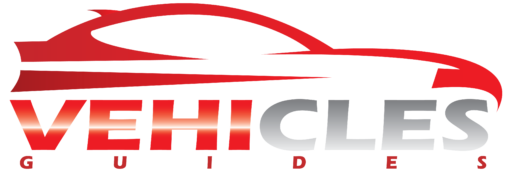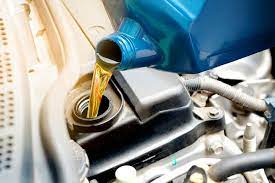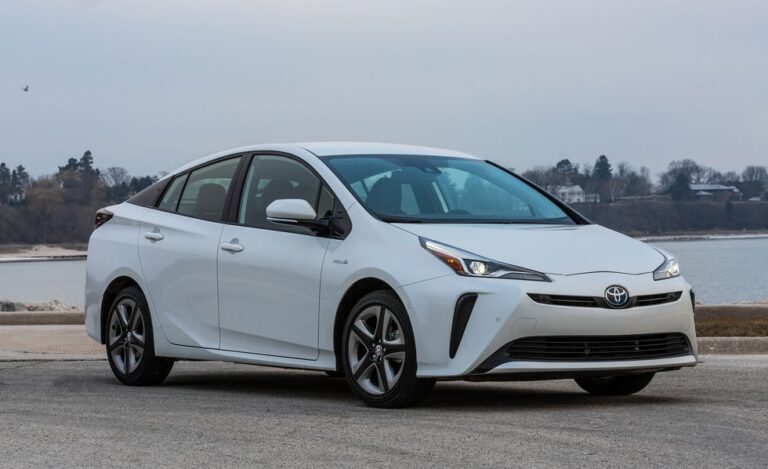Embarking on a journey to modify your Geekzilla Autos is an exciting endeavor, filled with the promise of enhanced performance, personalized aesthetics, and an elevated driving experience. However, amidst the allure of customization, it’s crucial to approach the modification process with careful consideration and foresight. In this guide, we’ll explore key aspects of vehicle modification, from budgeting wisely to prioritizing safety, avoiding over-modification, and ensuring legal compliance.
By delving into these essential components, you’ll gain the knowledge and guidance necessary to navigate the world of vehicle modification with confidence and success. So, let’s dive in and discover how to transform your vehicle while making informed decisions every step of the way.
| Topic | Summary |
|---|---|
| Budgeting for Vehicle Modifications | Consider factors such as cost of parts, labor, and additional expenses. Prioritize modifications based on impact and budget constraints. |
| Prioritizing Safety | Focus on upgrades such as brakes, suspension, and tires. Invest in quality parts and seek professional expertise for installation. |
| Risks of Over-Modification | Over-modifying can lead to decreased reliability, diminished resale value, and legal issues. Balance between performance, aesthetics, and practicality to avoid overdoing modifications. |
| Legal Compliance | Familiarize with local laws, consult legal resources, and seek professional assistance. Keep documentation of modifications for evidence of compliance. |
| Professional Assistance | Consider seeking help if unsure about performing modifications yourself. Professionals can ensure modifications are done safely and correctly. |
| Performance-Enhancing Modifications | Upgrades to brakes, suspension, tires, and engine components can improve performance without compromising safety. |
| Aligning Modifications with Goals | Prioritize upgrades that offer tangible benefits and align with long-term goals. Avoid modifications that may be difficult to undo or reverse. |
| Documentation | Keep receipts, invoices, and installation records as evidence of compliance and for warranty claims or legal purposes. |
| Finding Reliable Information | Utilize sources such as automotive forums, manufacturer websites, professional reviewers, and experienced enthusiasts for guidance and information. |
The Importance of Research Before Modification
Before diving into any modifications for your vehicle, it’s crucial to embark on the journey armed with knowledge. Research serves as the foundation of a successful modification project, guiding you through the intricacies of your vehicle’s capabilities and the various modification options available.
Understanding Your Vehicle’s Specifications
Delve into your vehicle’s specifications to gain a comprehensive understanding of its performance capabilities, structural design, and limitations. This knowledge will help you make informed decisions regarding which modifications are compatible and feasible for your vehicle.
Exploring Modification Options
Research the wide array of modification options available for your vehicle, ranging from performance upgrades to aesthetic enhancements. By exploring different possibilities, you can tailor your modification plans to align with your driving preferences and objectives.
Consulting Reliable Sources
Utilize reputable sources such as automotive forums, manufacturer websites, and expert reviews to gather insights and recommendations from experienced enthusiasts and professionals. These resources can provide valuable guidance on the most effective and reliable modification strategies.
Assessing Budget and Resources
Evaluate your budget and available resources to determine the feasibility of various modification options. Consider factors such as cost, time, and required skills to ensure that your modification plans are realistic and achievable within your means.
Understanding Your Vehicle’s Limits
Every vehicle has its limits, and understanding these limitations is essential for ensuring the safety, reliability, and longevity of your modifications.
Performance Capabilities
Gain a thorough understanding of your vehicle’s performance capabilities, including its engine power, torque, suspension design, and handling characteristics. Recognizing these limitations will help you select modifications that enhance performance without compromising safety or reliability.
Structural Integrity
Consider your vehicle’s structural integrity when planning modifications, especially those that involve significant alterations to its chassis or body. Modifying beyond your vehicle’s structural limits can compromise its safety and durability, leading to potential safety hazards and costly repairs.
Weight Capacity
Take into account your vehicle’s weight capacity when adding aftermarket accessories or modifications, such as roof racks, towing equipment, or additional cargo. Exceeding your vehicle’s weight limits can strain its suspension and braking systems, affecting handling and stability.
Legal and Regulatory Constraints
Be aware of legal and regulatory constraints that may restrict certain modifications, such as emissions standards, noise regulations, and vehicle modification laws. Failure to comply with these regulations can result in fines, penalties, or even legal consequences.
Choosing the Right Modifications for Your Needs
Selecting the right modifications for your vehicle is essential for achieving your desired performance, functionality, and aesthetic enhancements.
Assessing Your Goals and Priorities
Clarify your goals and priorities for modifying your vehicle, whether it’s improving performance, enhancing aesthetics, increasing utility, or all of the above. By identifying your objectives, you can focus on selecting modifications that align with your specific needs and preferences.
Considering Practicality and Functionality
Evaluate the practicality and functionality of potential modifications in relation to your everyday driving habits and activities. Choose upgrades that complement your lifestyle and enhance your driving experience without sacrificing comfort, convenience, or usability.
Balancing Performance and Reliability
Strike a balance between performance improvements and maintaining the reliability and longevity of your vehicle. Opt for modifications that enhance performance without compromising engine longevity, drivability, or fuel efficiency.
Researching Product Reviews and Recommendations
Research product reviews and recommendations from reputable sources to assess the quality, reliability, and effectiveness of various aftermarket modifications. Seek feedback from fellow enthusiasts, automotive forums, and professional reviewers to inform your decision-making process.
DIY vs. Professional Installation: What to Consider
Deciding whether to tackle modifications yourself or enlist professional help requires careful consideration of various factors, including your skill level, available resources, and the complexity of the modifications.
Assessing Your Skills and Experience
Honesty assess your skills and experience in automotive maintenance and modification. Consider factors such as your familiarity with tools and equipment, technical knowledge, and previous experience with similar projects.
Complexity of the Modification
Evaluate the complexity of the modification you’re considering and whether it requires specialized tools, equipment, or expertise beyond your capabilities. Complex modifications, such as engine swaps or chassis reinforcements, may be best left to professionals with the necessary skills and resources.
Time and Resources
Consider the time and resources required to complete the modification, including research, preparation, installation, and testing. DIY projects often require more time and effort, whereas professional installation can offer convenience and peace of mind, albeit at a higher cost.
Quality and Precision
Assess the importance of quality and precision in the installation of the modification. While DIY projects can be rewarding, they may lack the professional expertise and attention to detail required for optimal results. Professional installation ensures quality workmanship and adherence to industry standards.
Warranty and Liability
Consider the warranty implications and potential liability associated with DIY modifications versus professional installation. Some modifications may void your vehicle’s warranty if not installed correctly, whereas professional installation may offer warranty coverage and protection against liability for installation errors.
Budget Considerations
Evaluate your budget and financial resources when deciding between DIY and professional installation. While DIY projects may save money on labor costs, professional installation ensures peace of mind and reduces the risk of costly mistakes or damage during the installation process.
Budgeting Wisely for Modifications
When it comes to modifying your vehicle, budgeting wisely is key to ensuring that your project stays on track financially and that you get the most bang for your buck. Here’s how to approach budgeting for modifications with savvy:
Setting a Realistic Budget
Begin by establishing a realistic budget for your modification project. Consider factors such as the cost of parts, labor if applicable, and any unforeseen expenses that may arise during the process. It’s essential to be honest with yourself about what you can afford and to prioritize modifications based on your budget constraints.
Researching Costs
Research the costs associated with the modifications you’re considering. Compare prices from different suppliers and shops to ensure that you’re getting the best value for your money. Don’t forget to factor in any additional expenses, such as tools or equipment needed for installation.
Prioritizing Modifications
Prioritize modifications based on their impact on your vehicle’s performance, safety, and aesthetics, as well as their cost. Start with essential upgrades that offer the most significant benefits and work your way down the list as your budget allows. By prioritizing modifications, you can ensure that you’re allocating your funds where they will have the most significant impact.
Anticipating Future Expenses
Anticipate future expenses associated with maintenance and upkeep for your modified vehicle. Some modifications may require more frequent servicing or replacement parts, so it’s essential to factor these costs into your budgeting calculations. Planning ahead can help prevent financial surprises down the road.
Prioritizing Safety in Your Modification Plans
Safety should always be a top priority when modifying your vehicle to ensure that you and your passengers remain protected on the road. Here’s how to prioritize safety in your modification plans:
Identifying Safety Enhancements
Identify modifications that enhance safety features and capabilities, such as upgraded brakes, suspension components, or tires. These upgrades can improve your vehicle’s handling, stability, and braking performance, reducing the risk of accidents and collisions.
Investing in Quality Parts
Invest in high-quality parts and components from reputable manufacturers known for their commitment to safety and reliability. While cheaper alternatives may be tempting, they can compromise your vehicle’s safety and performance, putting you at risk on the road.
Seeking Professional Expertise
Consult with automotive professionals or experienced enthusiasts for guidance on safety-focused modifications and installation techniques. Their expertise can help ensure that your modifications are performed correctly and meet industry safety standards.
Testing and Tuning
Test and tune your modified vehicle to ensure that it performs safely and reliably under various driving conditions. Conducting thorough testing and adjustments can identify any potential safety issues or performance concerns before they become problems on the road.
Avoiding Over-Modification: Keeping It Balanced
While it’s tempting to go all out with modifications, over-modification can lead to a host of problems, including decreased reliability, diminished resale value, and legal issues. Here’s how to keep your modification plans balanced and avoid going overboard:
Setting Realistic Goals
Set realistic goals for your modification project based on your budget, time constraints, and the intended use of your vehicle. Avoid succumbing to the temptation to add every available upgrade and focus on enhancements that align with your needs and priorities.
Considering Long-Term Implications
Consider the long-term implications of modifications on your vehicle’s reliability, maintenance costs, and resale value. Some modifications may be irreversible or difficult to undo, so it’s essential to weigh the potential consequences before making changes.
Striking a Balance
Strike a balance between performance, aesthetics, and practicality when planning modifications for your vehicle. Avoid sacrificing essential features or functionality in pursuit of cosmetic enhancements or performance gains that may be unnecessary for your driving needs.
Seeking Professional Advice
Seek advice from automotive professionals or experienced enthusiasts to help you assess the potential risks and benefits of specific modifications. Their insights can help you make informed decisions and avoid over-modifying your vehicle.
Checking for Legal and Regulatory Compliance
Before making any modifications to your vehicle, it’s essential to ensure that you comply with all relevant legal and regulatory requirements. Here’s what you need to know to stay on the right side of the law:
Understanding Applicable Regulations
Familiarize yourself with local, state, and federal regulations governing vehicle modifications, including emissions standards, noise regulations, and equipment requirements. These regulations can vary significantly depending on your location, so it’s essential to research the specific rules that apply to you.
Consulting Legal Resources
Consult legal resources, such as government websites, automotive industry publications, or legal professionals specializing in automotive law, for guidance on compliance requirements and potential legal implications of specific modifications.
Verifying Certification and Approval
Ensure that any modifications you make to your vehicle are certified and approved by relevant regulatory authorities. Certain modifications may require certification or approval to ensure that they meet safety and performance standards established by regulatory agencies.
Keeping Documentation
Keep thorough documentation of all modifications made to your vehicle, including receipts, invoices, and installation records. This documentation can serve as evidence of compliance with regulatory requirements and may be necessary to prove the legality of your modifications in the event of an inspection or legal dispute.
Seeking Professional Assistance
If you’re unsure about the legality of a particular modification or how to ensure compliance with relevant regulations, seek assistance from automotive professionals or legal experts familiar with vehicle modification laws. Their expertise can help you navigate the complexities of regulatory compliance and avoid potential legal issues.
Final Thought:
As we conclude our exploration of vehicle modification, it’s clear that success in this endeavor hinges upon thorough research, careful planning, and a mindful approach. By budgeting wisely, prioritizing safety, avoiding over-modification, and ensuring legal compliance, you can embark on your modification journey with confidence and peace of mind.
Remember, each modification you make should align with your goals, needs, and priorities, ultimately enhancing your driving experience without compromising safety or reliability. Whether you’re seeking performance enhancements, aesthetic upgrades, or both, staying informed and making thoughtful decisions will guide you towards achieving the results you desire. So, as you set out to customize your vehicle, may this guide serve as a valuable resource, empowering you to navigate the world of vehicle modification with skill and success. Happy modifying!
FAQs:
What factors should I consider when budgeting for vehicle modifications?
When budgeting for vehicle modifications, it’s essential to consider the cost of parts, labor, tools, and any potential additional expenses. Prioritize modifications based on their impact, cost, and your budget constraints.
How can I ensure that my vehicle modifications prioritize safety?
To prioritize safety in vehicle modifications, focus on enhancements such as upgraded brakes, suspension components, and tires. Invest in high-quality parts from reputable manufacturers and seek professional expertise for installation.
What are the risks of over-modifying my vehicle?
Over-modifying your vehicle can lead to decreased reliability, diminished resale value, and potential legal issues. It’s crucial to strike a balance between performance, aesthetics, and practicality to avoid overdoing modifications.
How can I ensure that my vehicle modifications comply with legal regulations?
To ensure compliance with legal regulations, familiarize yourself with local, state, and federal laws governing vehicle modifications. Consult legal resources and seek professional assistance if you’re unsure about the legality of a specific modification.
What should I do if I’m unsure about my ability to perform modifications myself?
If you’re uncertain about your ability to perform modifications yourself, consider seeking professional assistance. Automotive professionals can provide guidance, expertise, and ensure that modifications are performed safely and correctly.
Are there any specific modifications that can enhance my vehicle’s performance without compromising safety?
Yes, several modifications can enhance your vehicle’s performance while prioritizing safety. These include upgrades to brakes, suspension, tires, and engine components, which can improve handling, stability, and overall driving dynamics.
How can I ensure that my modifications align with my long-term goals for my vehicle?
To ensure that modifications align with your long-term goals for your vehicle, consider factors such as reliability, maintenance costs, and resale value. Prioritize upgrades that offer tangible benefits and avoid modifications that may be difficult to undo or reverse.
What documentation should I keep for my vehicle modifications?
Keep thorough documentation of all modifications made to your vehicle, including receipts, invoices, and installation records. This documentation serves as evidence of compliance with regulations and may be necessary for warranty claims or legal purposes.
Where can I find reliable information and resources for vehicle modifications?
You can find reliable information and resources for vehicle modifications from reputable sources such as automotive forums, manufacturer websites, professional reviewers, and automotive publications. Additionally, seeking advice from experienced enthusiasts and professionals can provide valuable insights and guidance.







